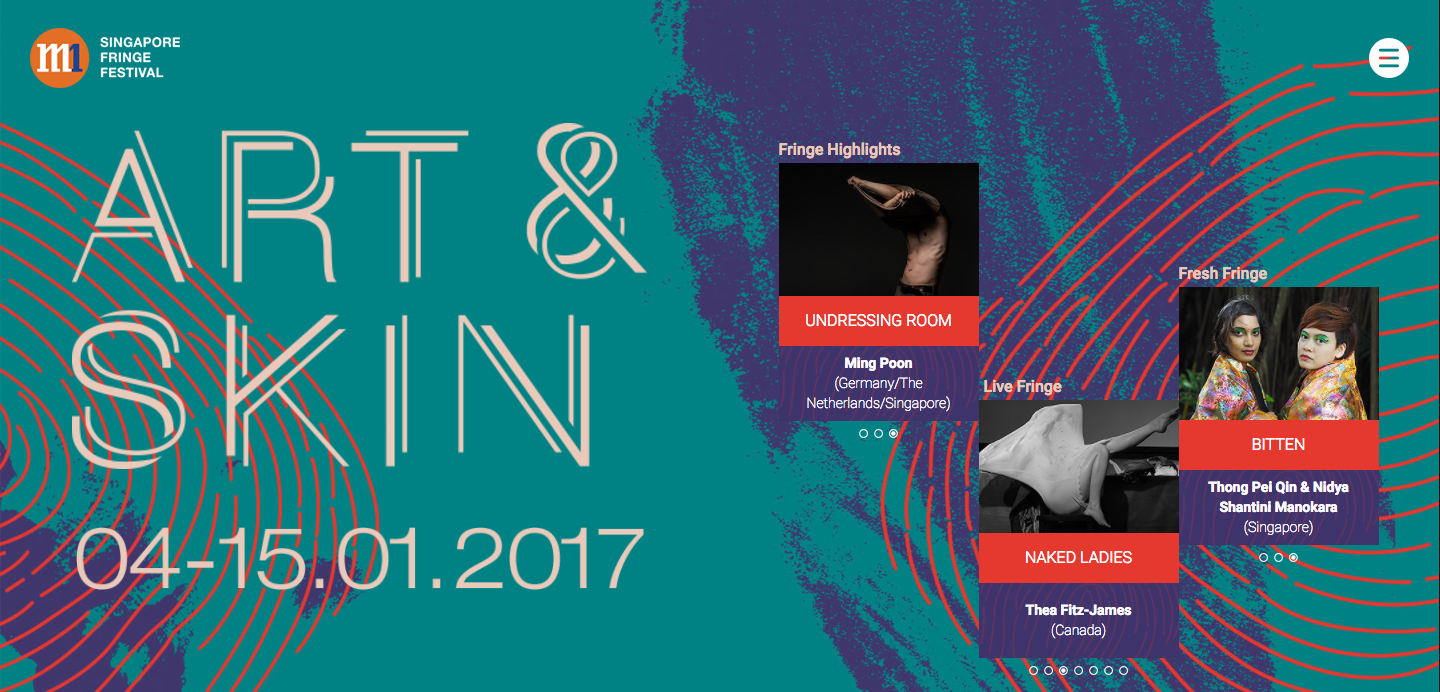It was announced on Tuesday (5 December) that the M1 Singapore Fringe Festival will be withdrawing Undressing Room by Ming Poon and Naked Ladies by Thea Fitz-James. This was after our censorship arm, the IMDA, deemed that both performances exceeded the M18 rating.
It is noteworthy that the aforementioned "breach" was discovered soon after helpful members of the public complained about the "excessive nudity" which they felt was "pornography disguised as art". (Of course, we cannot be sure whether there is a causal link, but the sequence of events seems at least a little uncanny).
According to its latest press release, the Festival decided to do this instead of modifying them to fit the Arts Entertainment Classification Code because they believe that "any adjustments and abridgements to the art works to fit these guidelines will result in significant changes that will affect the original artistic intent."
How do we define art anyway?
I applaud their decision. Because the truth is, the definition of art is fluid — it is constantly evolving.
And sadly, Singaporeans just aren't ready for (read: don't deserve) this new definition in particular — which isn't pornography, by the way — but I'll explain this later.
You see, art has never been just about the mastery of a craft (like painting or sculpting); it is about finding an aesthetic theory to connect with and represent our ever-changing society in a meaningful manner.
A good example is the move towards videography by contemporary artists, who acknowledge that with the invention of video cameras, the canvas is no longer the only medium available to represent motion.
Nudity ≠ pornography
Similarly, both performances used nudity — which many millennials have long being exposed to and are already saturated with — to inspire easily-distracted and bored contemporaries to reflect on their identity and vulnerabilities.
Instead of being titillating, I strongly believe such intimate interaction with one's vulnerabilities is empowering, because it helps you to identify, and eventually, rid yourself of them.
This sad irony, which the organisers aptly pointed out, is that these carefully-created works were judged to be pornography based on our preconceived (and honestly, juvenile) assumption that nudity equals pornography. If the social conservatives who lodged the complaints came down from their moral high horse and took the time to understand the context of both works, they would be able to discover the positive messages they advocate.
But is it really about these works?
When anonymous conservative complaints and campaigns against the Fringe Festival's lineup first emerged onto social media, stirring controversy and debate, poet and playwright Alfian Sa'at took to Facebook with the following status:
What he was subtly pointing out, especially at point two, is significant: that in truth, the conservative activist faction is simply using this, and these anonymous complainers, as a proxy to advance an attack in an ongoing culture war.
To them, the merits of the work are secondary to the ability to stir up controversy, force people to pick sides, and drag in the state as an arbiter to the conflict.
Now, why should we be concerned about this? Alfian's elaboration of point two and also three is pertinent — in particular, that living and letting live, especially where creative boundaries are tested in "uncommon" spaces, is the Singaporean way, just like how nobody picket-fences church services or Friday prayers at the mosque because they disagree with them taking place.
So let's get back to the impact this censorship has on pieces like Naked Ladies and Undressing Room.
Thanks to the millions that the government invests in arts every year, our local arts scene has come a long way, and is certainly much more vibrant than a couple decades ago. Today, we host numerous visiting art exhibitions and hold many of our own — like the Singapore Biennale, just to name one that I particularly enjoy.
However, most of the art we see is "for-sale" art. They are undoubtedly beautiful and masterfully created, but they might not push boundaries in a way that can truly make Singapore's arts great.
No matter how much money we pour into the arts, it would be a challenge for us to produce great thinkers the likes of Claude Monet, for instance, who spearheaded an art movement (Impressionism). This is not because we lack talent, but because we lack the ability to accept anything that is "fringe" or "not so pretty" as art.
Should any artist dare to be radical — for example, plucking one's pubic hair in public — we make an example of him by, for instance, withdrawing all funding to the arts. (Thankfully, the no-funding rule was lifted a decade later.)
And we will continue to be surrounded by masterpieces by foreign artists, with little to call our own, if we continue to police everything according to a small, noisy (and anonymous, might we add) group's brand of conservatism and "morals".
For Singapore to ever have a Renaissance — in other words, to achieve something truly great in the arts — we must be able to embrace art, even that which pushes boundaries, with an open mind. It would also help greatly to make sure one understands an art work before deciding if it is worth campaigning against, and open dialogue contributes vastly in this regard.
Both these things would definitely help, alongside a live-and-let-live approach — as opposed to jumping to your feet, hustling to your nearest computer and dragging our government in to back your lobby against it.
We must accept that there will always be contrary views, including different ways to represent human vulnerabilities and identity in art, and they may not necessarily be invalid.
Here's a man who pushed boundaries in art:
 Source: Wikimedia
Source: Wikimedia
Vincent van Gogh (a name we are all familiar with) is the perfect example: When he was alive, the Post Impressionist only ever sold one painting because he refused to conform to the conventional definition of what a painting should be and look like. Because he refused to compromise his craft, many around him considered the misunderstood painter a failure. Today, the artist's works are one of the most sought-after — just ask the guys from 1MDB, who spent more than $200,000 on one of his pieces.
So, who are we to say that stripping in front of an audience is not the best way to allow people to explore their vulnerabilities in physical nudity?
As the definition of art — or most opinions, really — can never be empirically proven, none is more correct than the other.
Instead of banning and shutting down events (especially ticketed, closed-door ones), we should live and let live.
After all, if these dissenting views are invalid, history and human rationality will eventually prove them to be so — while not getting in the way of potential, real, greatness.
Top image: Screenshot from Fringe Festival website
If you like what you read, follow us on Facebook and Twitter to get the latest updates.
If you like what you read, follow us on Facebook, Instagram, Twitter and Telegram to get the latest updates.
